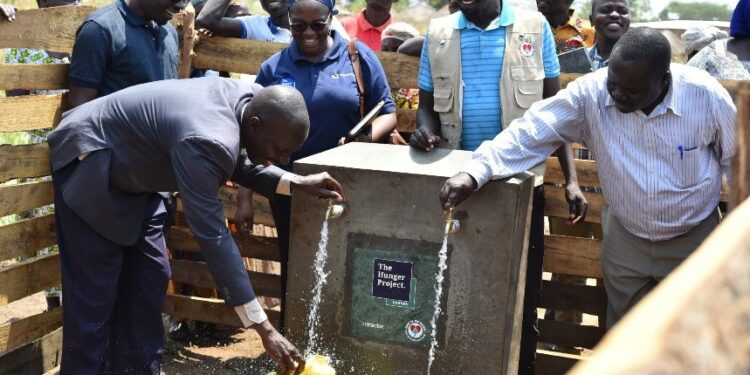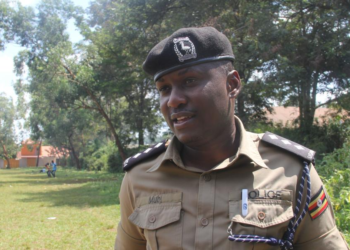The Hunger Project – Uganda together with Amuru District launched the first-ever piped water system in Lakang Sub-county. Lakang is one of the remotest sub counties in Northern Uganda with minimal access to key services. When the Lord’s Resistance Army conflict officially ended in Northern Uganda in 2006, the area became one of those resettlement areas for families that had been living in camps nearby.
Speaking at the commissioning of the water project, Payolem Robinson the District water Engineer for Amuru revealed that Lakang Subcounty has one of the lowest water coverage levels in the district.
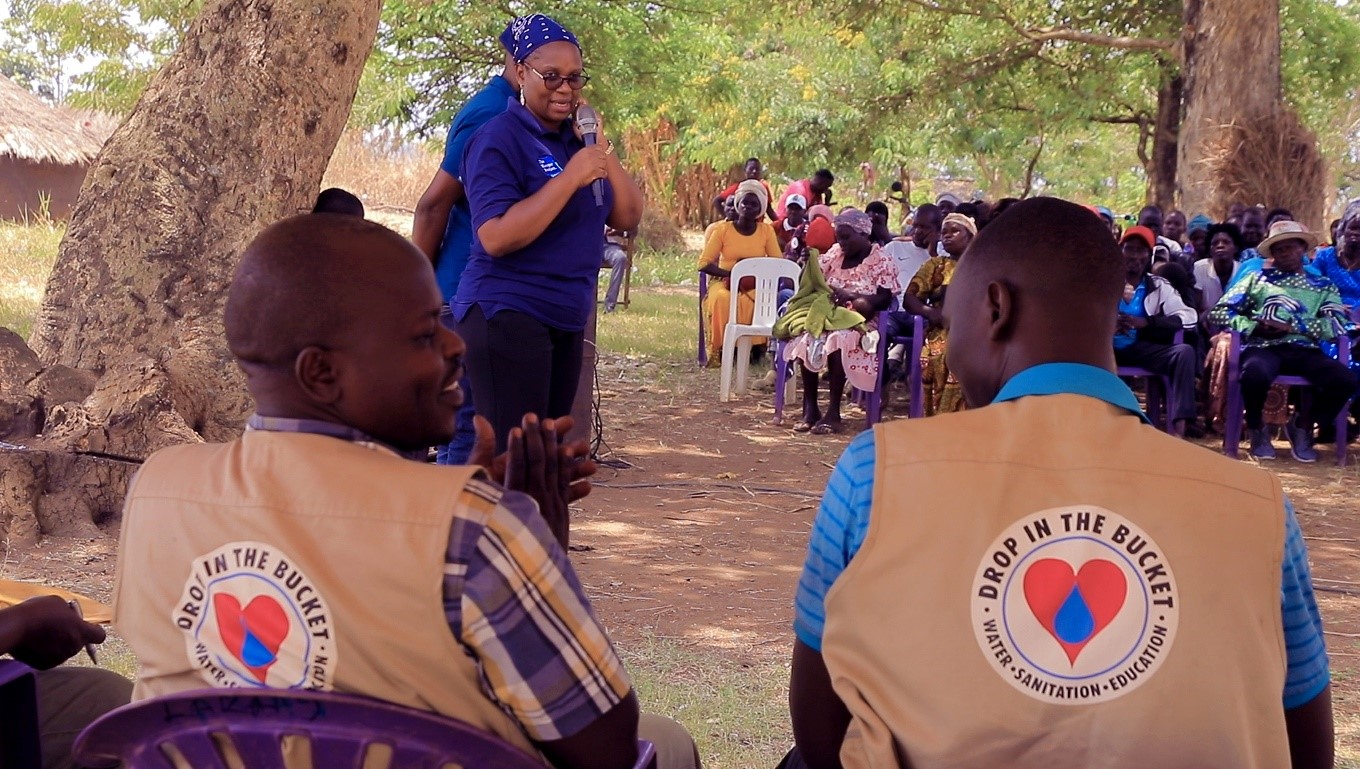
“Before this intervention by The Hunger Project, we undertook a baseline survey as a district and discovered that safe water access in Lakang was just at 26 percent. Following the introduction of the piped water system, we anticipate water access to rise to 43 percent in this sub-county”.
The Hunger Project is a global movement that is creating a world without hunger. Since 1999, they have been working in Uganda to unlock local community capacity for self-reliant action to address their worst cases of poverty and hunger sustainably. In line with the above mission, The Hunger Project-Uganda stands in solidarity with the people of Northern Uganda and the Government of Uganda to fast-track the initiation, design, and coordination of special programmes and projects for the recovery and development of Northern Uganda.
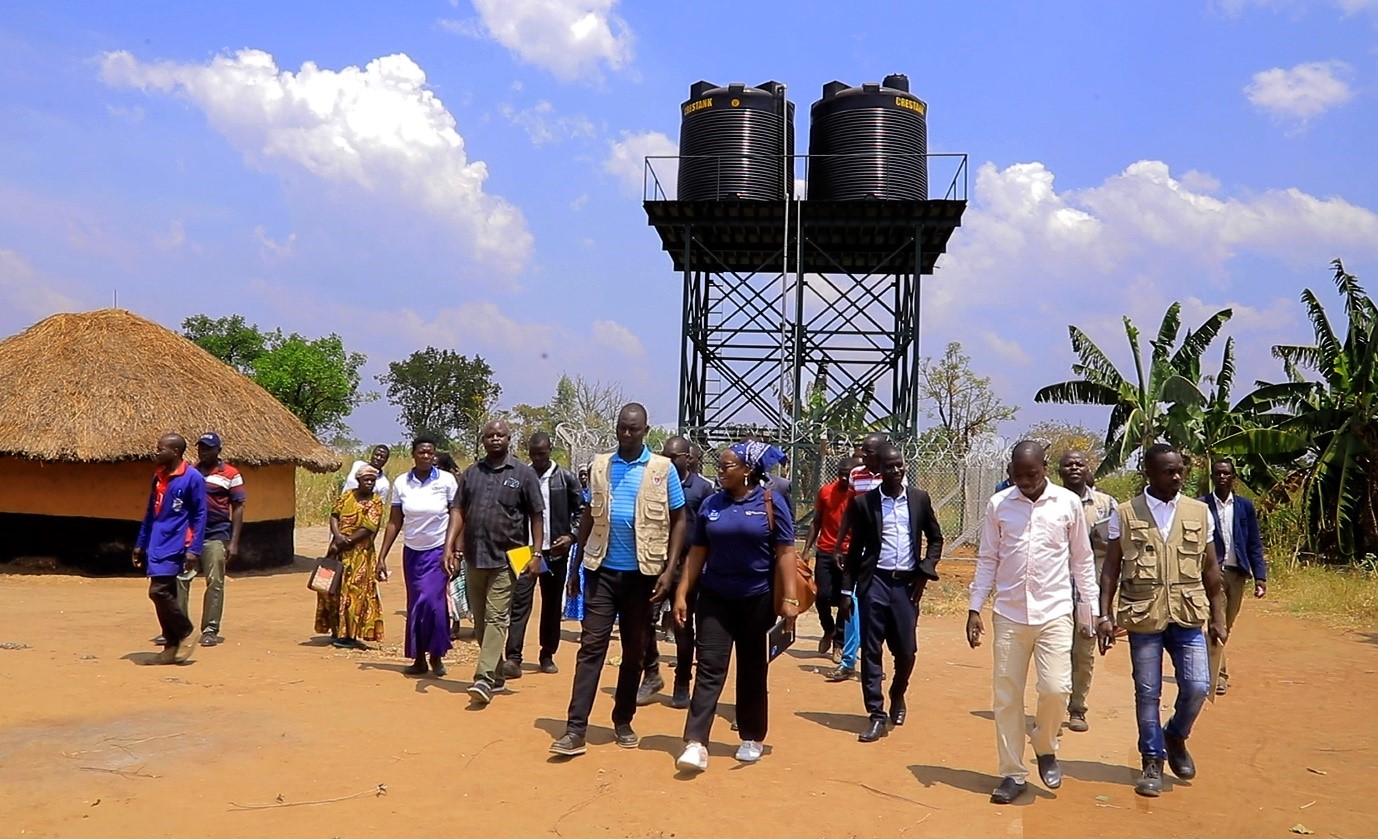
Using the Epicenter Model, communities are mobilized to undertake both individual and collective action to transform the systems of inequity within selected sectors such as health, education, Agriculture, Water and Sanitation, and Finance that create hunger and cause it to persist in their communities.
About two years ago, The Hunger Project-Uganda together with Amuru district leadership entered a partnership to set up an epicenter in Lakang sub county. This was largely because of the low access to basic services such as health care, education, nutrition and economic activities in the area.
Ms Evelyn Namubiru Tondo- the Head of Programs at The Hunger Project-Uganda revealed that access to water tops the organization’s priority interventions in the area.
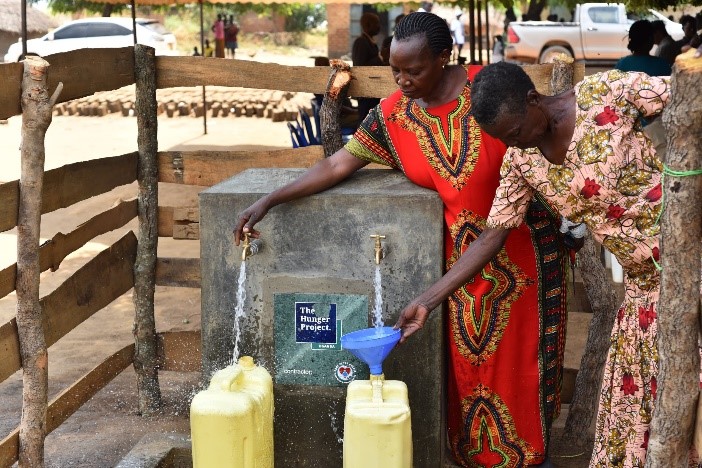
She explained that at the time of setting up Amuru Epicenter, the situational analysis indicated scarcity of water in the area affected other sectors such as health, education, and economic activities.
Ms Namubiru shared that improving access to water was a priority for the area, to reduce the burden women, girls, and other children faced to avail water to their households.
“It is anticipated the WaterFirst project water sources will lessen the time spent by women, girls, and children collecting water and give them time to engage in other productive activities. I urge the district authorities to consider these water sources as your own. For the community please guard these points jealously for future generations.”
Serving about 700 households, the clean and safe water project by The Hunger Project-Uganda in partnership with The Hunger Project-Australia is powered by solar, the water is generated from underground reservoirs, pumped, and stored into mega overhead tanks. This is then distributed to several points within the homesteads in Lakang sub-county.

According to Umadet James, the Epicenter Chairperson in Lakang Sub-county, the availability of clean and safe water will enable them deal with a number of challenges such as domestic violence and retention of girls in school.
“Before the piped water system, women had to travel very long distances looking for water, sometimes they would take hours to return home and this would spark off fights and quarrels from the husbands suspecting infidelity. Now that the water has been brought into the households, we are hopeful that such fights will come to an end”.
The water project was constructed by Drop in the Bucket, a specialized water engineering firm in Northern Uganda. Julius Odong one of the implementing project officers cautioned the residents of Lakang to guard the water investment jealously.
Odong challenged community water user committee members to guard against any form of vandalism, wastage, and abuse.
“ You need to ensure that the engineering systems in place such as the piping, the access points, and the mounted water tanks are all well cared for”.
To ensure proper utilization and sustainability of the water facilities, the district and sub-county officials in Lakang set up a water management user committee that is responsible for overseeing the project. They are also responsible for identifying resources to cater for repairs on a regular basis.
Do you have a story in your community or an opinion to share with us: Email us at editorial@watchdoguganda.com


